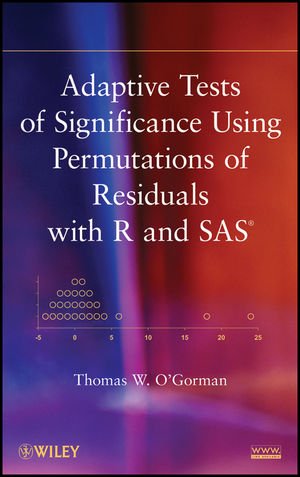

Most ebook files are in PDF format, so you can easily read them using various software such as Foxit Reader or directly on the Google Chrome browser.
Some ebook files are released by publishers in other formats such as .awz, .mobi, .epub, .fb2, etc. You may need to install specific software to read these formats on mobile/PC, such as Calibre.
Please read the tutorial at this link. https://ebooknice.com/page/post?id=faq
We offer FREE conversion to the popular formats you request; however, this may take some time. Therefore, right after payment, please email us, and we will try to provide the service as quickly as possible.
For some exceptional file formats or broken links (if any), please refrain from opening any disputes. Instead, email us first, and we will try to assist within a maximum of 6 hours.
EbookNice Team

Status:
Available0.0
0 reviewsAdaptive Tests of Significance Using Permutations of Residuals with R and SAS illustrates the power of adaptive tests and showcases their ability to adjust the testing method to suit a particular set of data. The book utilizes state-of-the-art software to demonstrate the practicality and benefits for data analysis in various fields of study.
Beginning with an introduction, the book moves on to explore the underlying concepts of adaptive tests, including:
Throughout the book, numerous figures illustrate the key differences among traditional tests, nonparametric tests, and adaptive tests. R and SAS software packages are used to perform the discussed techniques, and the accompanying datasets are available on the book's related website. In addition, exercises at the end of most chapters enable readers to analyze the presented datasets by putting new concepts into practice.
Adaptive Tests of Significance Using Permutations of Residuals with R and SAS is an insightful reference for professionals and researchers working with statistical methods across a variety of fields including the biosciences, pharmacology, and business. The book also serves as a valuable supplement for courses on regression analysis and adaptive analysis at the upper-undergraduate and graduate levels